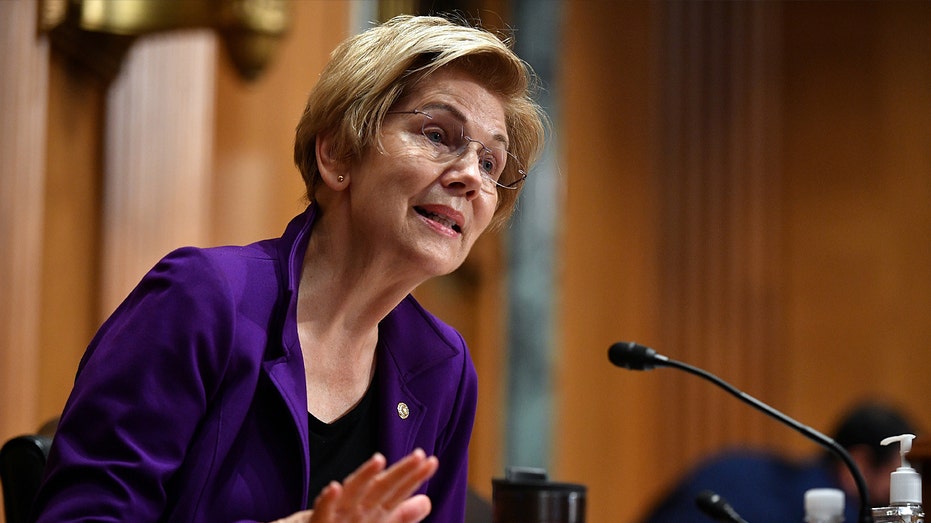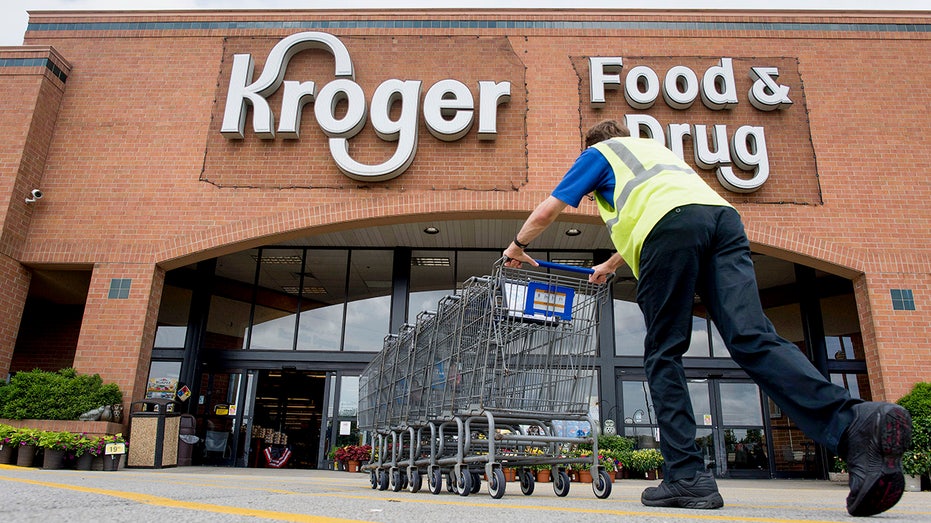Elizabeth Warren takes aim at supermarket chains over soaring food prices
Warren takes aim at Kroger, Publix, Albertsons over soaring food prices
Experts react to Elizabeth Warren calling Powell a 'dangerous man'
Donald Luskin, Trendmacro CIO, and Ed Yardeni, Yardeni Research President, discuss Elizabeth Warren’s recent comments about Biden’s decision to renominate Jerome Powell as the Federal Chair on ‘Making Money’
Sen. Elizabeth Warren accused three major grocery store chains of exploiting the coronavirus pandemic to exponentially raise prices for American consumers, even as the companies rake in record profits.
Warren, a former Democratic presidential candidate, suggested in separate letters to the chief executives at Publix, Kroger and Albertsons that the companies had used their massive profits earned in 2020 to reward executives with bonuses and make additional stock buybacks, all while jacking up the price of food.
WHERE ARE SURGING CONSUMER PRICES HITTING AMERICANS THE HARDEST?
"Your company, and the other major grocers who reaped the benefits of a turbulent 2020, appear to be passing costs on to consumers to preserve your pandemic gains, and even taking advantage of inflation to add greater burdens," Warren wrote.

Sen. Elizabeth Warren, D-Mass., speaks during a Senate Finance Committee on Capitol Hill Oct. 19, 2021 in Washington, D.C. (Mandel Ngan-Pool/Getty Images / Getty Images)
Americans are grappling with the hottest inflation in nearly four decades, with consumer prices in November soaring 6.8% from the year-ago period. Prices for food were no exception: In November, they jumped 0.5% from the previous month and 6.8% from the previous year.
The increases were most pronounced for different meats, with staggering year-over-year increases for beef and veal (20.9%), bacon (21%), pork chops (12.7%), fish (8%) and chicken (9.2%). Egg prices climbed 8% compared to last year, while coffee was up 7.5% and cereal was up 5.7%.
"Your companies had a choice: they could have retained lower prices for consumers and properly protected and compensated their workers, or granted massive payouts to top executives and investors," Warren wrote. "It is disappointing that you chose not to put your customers and workers first."
Kroger, for instance, recorded a profit of $2.6 billion in 2020, a 5.6% increase from the previous year. Albertsons reported $1.89 billion in net income for 2020, an increase from $612.1 million, and Publix reported a 60% growth in profit for the third quarter of 2020, Warren wrote.

An employee pushes shopping carts toward a Kroger Co. store in Peoria, Illinois, on Tuesday, June 16, 2015. (Daniel Acker/Bloomberg via Getty Images / Getty Images)
"In 2021, these same companies continued to earn massive profits while pushing grocery cost increases onto consumers," the progressive lawmaker wrote, pointing to a recent call with investors in which Kroger CEO Rodney McMullen said that "a little bit of inflation is always good in our business."
Kroger, Publix and Albertsons did not immediately respond to a FOX Business request for comment, but a spokesperson for the Food Industry Association – which represents a broad swath of the food industry, including some retailers – blamed the cost increases on supply chain disruptions, including a shortage of labor and transportation, to higher fuel costs and increased consumer demand.
"Grocers are doing everything they can to absorb these cost increases, and we ask consumers to continue working with us as we recalibrate our supply chains," said Heather Garlich, senior vice president of communications at the Food Industry Association.
GET FOX BUSINESS ON THE GO BY CLICKING HERE
A separate Labor Department gauge that measures inflation at the wholesale level before it reaches consumers found it surged 9.6% in November from a year ago, marking the highest figure on record since the government began tracking the data 11 years ago. On a monthly basis, prices rose 0.8% in November following a 0.6% gain in October. Food prices climbed 1.2% in November.
Warren asked the companies to respond to a series of questions by Jan. 7, 2022, including the extent to which they met or exceeded profit goals during the pandemic; any increase in the average wholesale price paid by their company for different food items; any increase in the average retail price offered by the company for different food; and whether the companies raised wages this year.





















